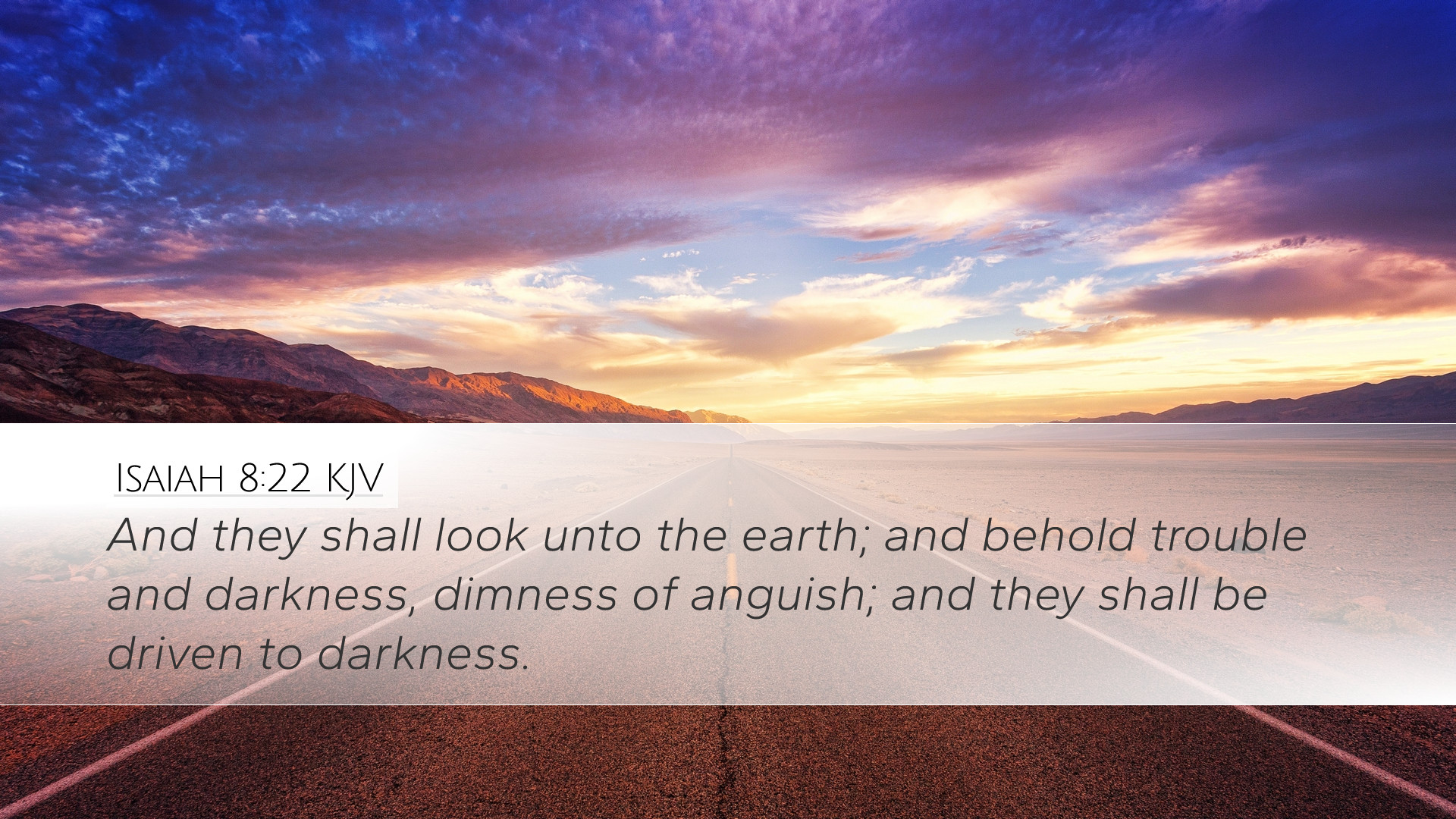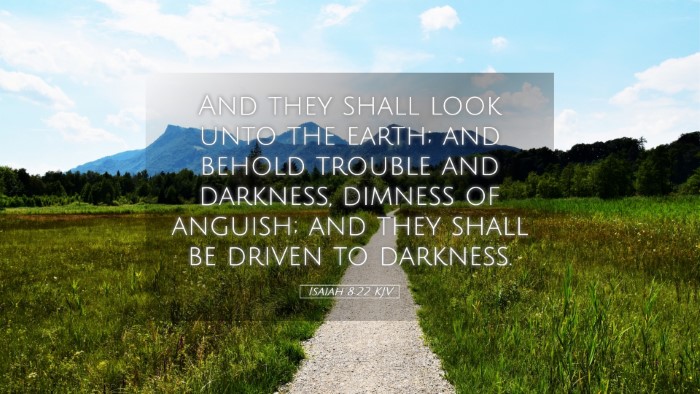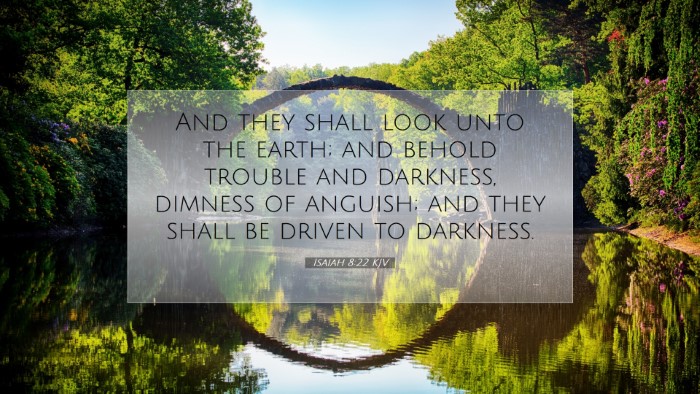Commentary on Isaiah 8:22
Isaiah 8:22 states: "And they shall look unto the earth; and behold trouble and darkness, dimness of anguish; and they shall be driven to darkness."
Contextual Background
This verse comes from a significant portion of the Book of Isaiah, which serves both as a historical account and prophetic warning to the people of Israel. The prophet Isaiah, under divine inspiration, addresses the spiritual and moral decline of Judah.
Analysis of Key Themes
The verse reflects profound themes of despair and the consequences of rejecting divine guidance. It serves as a warning about the results of turning away from God and seeking help from worldly sources.
1. The Consequences of Rejection
According to Matthew Henry, this passage emphasizes the stark contrast between the hope found in God and the despair that ensues from disbelief and reliance on earthly powers. When the people look to their own resources instead of seeking guidance from God, they find only darkness and trouble.
2. The Surveillance of Darkness
Albert Barnes interprets the ‘darkness’ mentioned in the verse as a metaphor for ignorance and the void left by the absence of divine light. The trouble and anguish signify the distress that Israel would face as a result of their rebellion against God’s ways. This serves as an illustration of spiritual blindness that results from idol worship and reliance on human wisdom rather than God’s revelation.
3. A Call for Reflection
Adam Clarke elaborates that the phrase "look unto the earth" suggests a misplaced focus on worldly affairs, which leads only to gloom. Clarke instills a sense of caution by encouraging readers to discern where they seek understanding and hope. Instead of turning towards secular solutions, they are invited to turn back to God who offers light amidst the darkness.
Implications for Believers
This verse serves as a stark reminder for modern believers not to fall into the same trap of despair seen in Isaiah’s time. The world offers many distractions and temporary solutions, but Isaiah calls followers to look beyond the physical realm.
1. Spiritual Vigilance
Pastors and theologians might consider this an exhortation to promote vigilance against the allure of contemporary secularism that aims to eclipse spiritual truths.
2. Assurance in Darkness
For students and scholars, understanding this context can foster discussions on the transformative hope that exists through faith in Christ, who is the light in any darkness. The passage underlines a need for reliance on divine wisdom and not human understanding.
3. Call to Ministry
For those in ministry, this verse encourages a calling to guide others towards restoration and hope through the Gospel, leading them from darkness into the marvelous light of Christ.
Conclusion
Isaiah 8:22 is a poignant reminder of the dangers of spiritual neglect and the resultant troubles from departing from divine understanding. By combining insights from the public domain commentaries of Matthew Henry, Albert Barnes, and Adam Clarke, we glean a rich analysis of the importance of looking toward God for light amidst the darkness of life. Believers are called not just to awareness but action—seeking God fervently in all matters.


